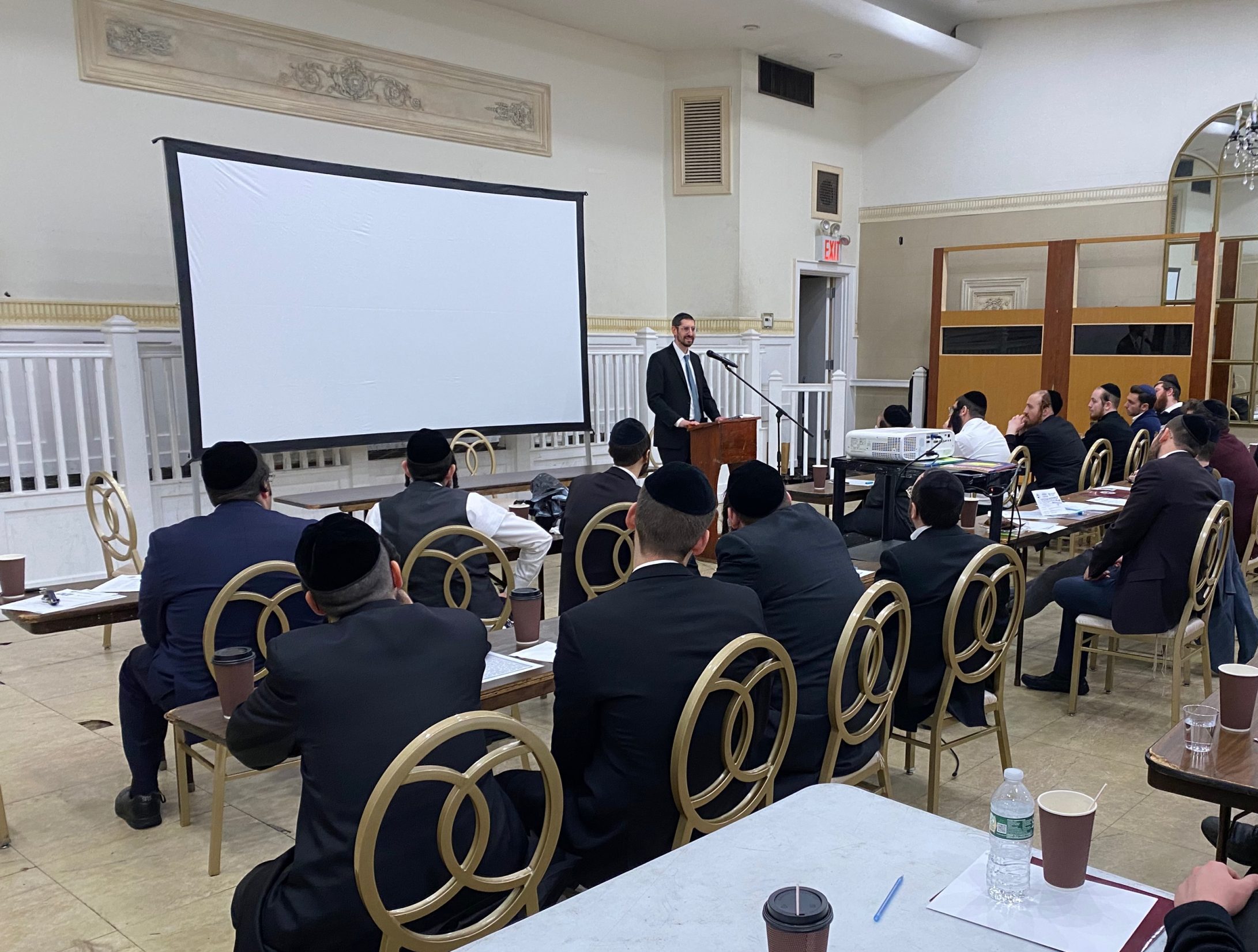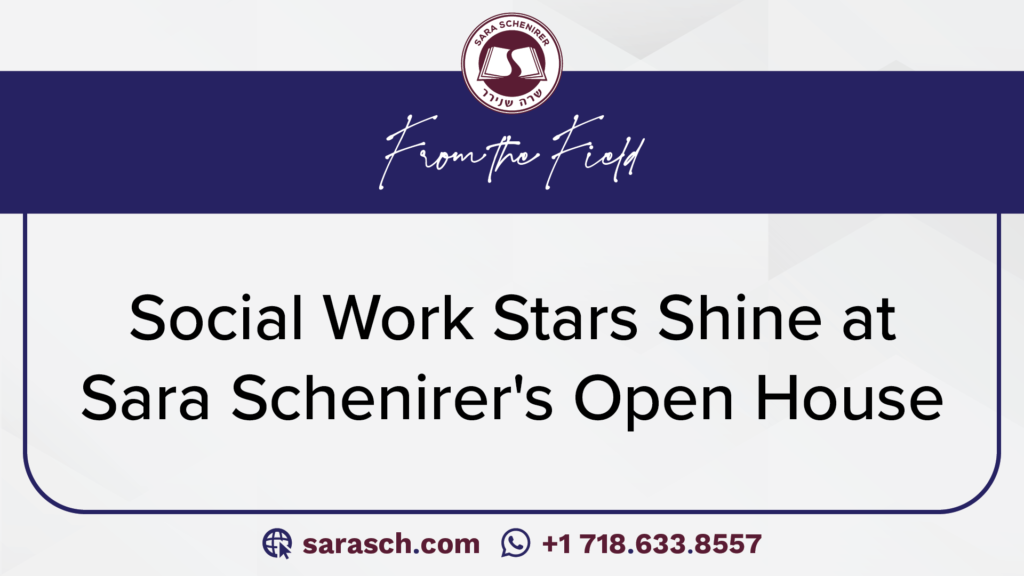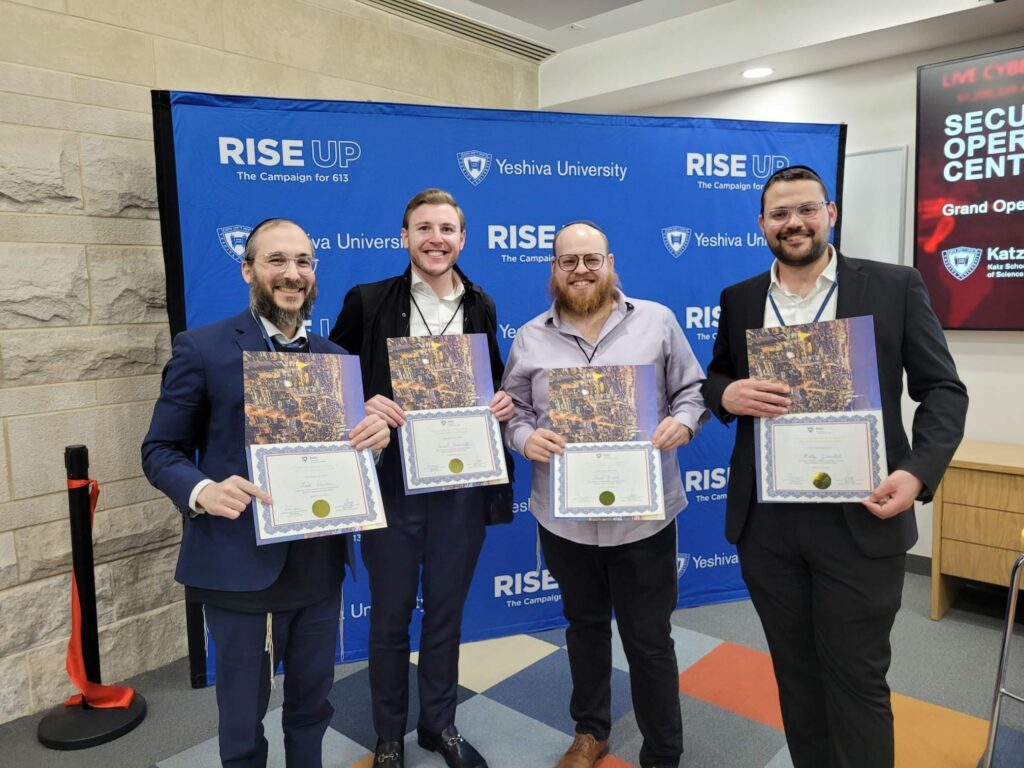Four years after partnering with the Wurzweiler School of Social Work, a partnership that has graduated hundreds of highly educated and superbly trained professionals, Sara Schenirer announces new and exciting social work tracks for men. We sat down with Dovid Becker, LCSW, Program Coordinator and Professor at the Wurzweiler School of Social Work, and Rabbi Ariel Leon, Director of Sara Schenirer Men’s programs, to learn more.
What has your experience been offering social work tracks for men until this point?
Rabbi Leon: The program up to this point has been very successful, rapidly earning a reputation for academic excellence and accommodating our community’s cultural sensitivities. Our graduates include a wide range of students from across the Charedi spectrum, including rabbanim, educators, lay leaders and everything in between. The high caliber of the students and educators allows us to offer our students a top-quality education while respecting their halachic and hashkafic expectations.
What has changed and why?
Dovid Becker: We’ve received significant outreach from individuals currently in leadership roles, who are passionate about helping people. They are rabbanim, mechanchim, menahalim and educators who have spent a significant amount of time working with bachurim, couples and families in their current role and would like to join our program so they can use their natural abilities and passion in a meaningful way. The challenge they face is that frequently, the rigors of the program and internship training are unworkable at their stage in life.
We recognize the great benefit these leaders can bring to our kehillos, and therefore we developed another track to our program that is designed to be more manageable for this population. This track will take somewhat longer to complete but will provide the same elite-level learning experience as the current program.
In addition, there are many potential star therapists who face a challenge of a different sort, i.e. their English writing skills are not fully developed, which can hamper their schooling and professional aspirations. The slower pace of the new track, as well as added support in English language and writing skills, will give this population the opportunity to become licensed professional therapists who will meaningfully impact their kehillos.
Can you offer some examples of what this will look like in practice?
Dovid Becker: Our men’s program has been operating successfully for three years, and we have sufficient data and understanding of the obstacles and challenges that frum men face when considering the field. The time commitment is significant and often challenging for those with families to raise and support. Based on this, we reviewed how and where we could tailor the program to eliminate these obstacles without compromising the level of education, making social work more accessible to the entire community.
Whereas our regular program requires five semesters (18 months) to graduate, the new track will allow a student to complete the program over seven semesters (27 months). Students will also enjoy greater flexibility regarding where they can perform their internships, including the possibility of completing some fieldwork hours through their existing positions, wherever appropriate, under additional supervision and guidance.
Will the classes continue to be online or will they be in person?
Rabbi Leon: All degree programs in the Sara Schenirer men’s division are offered exclusively live-online. Since our students hail from all across North America, this is our means of accommodating as many students as possible. The live-online classes are extremely interactive — teachers and students form close ties and support each other throughout the program and beyond.
Are the faculty supportive of the new tracks?
Dovid Becker: Actually, they are the ones who have been encouraging us to consider adding them. Professors like Dr. Akiva Perlman, Chananya Silverman and Alexander Rand have long believed that we need to find ways to provide those in communal and educational leadership roles, and those for whom English is a second language, the opportunity to develop these important skills.
These professors work primarily within our kehillos, and they are keenly aware of the growing need for well-trained frum male therapists. Furthermore, since individuals currently in communal leadership roles are already using their abilities to help families in meaningful ways, providing them with the highest levels of training will give them the tools they need to do so responsibly and effectively. The impact on our kehillos will be enormous.
What are the career paths for graduates of this program?
Dovid Becker: Not only will graduates of our program have a degree from a prestigious university, but the entire gamut of social work careers will be open to them. Some may choose to remain in their current positions; others may open private practices, work in education, or join existing clinics, just to name a few possibilities. Social work is not for everyone, but those who excel will always have a range of options available to them, and they will contribute immensely to the emotional health of our communities.
Applications are now being accepted for the Summer Semester, which begins in May 2022.
For more information, please contact the Men’s Social Work department:
Rabbi Ariel Leon
(718) 633-8557 ext. 40




